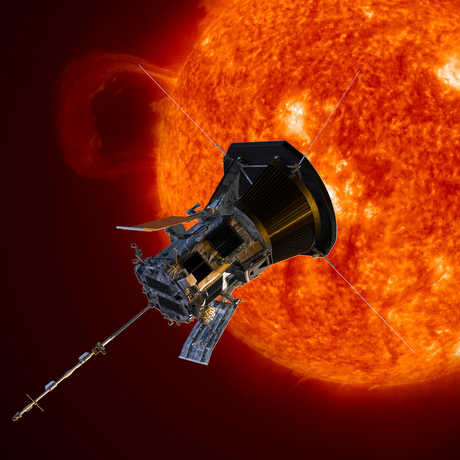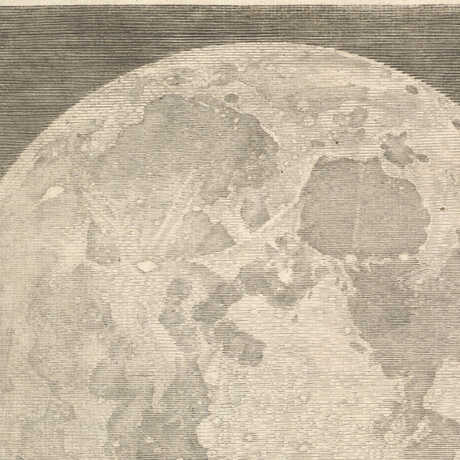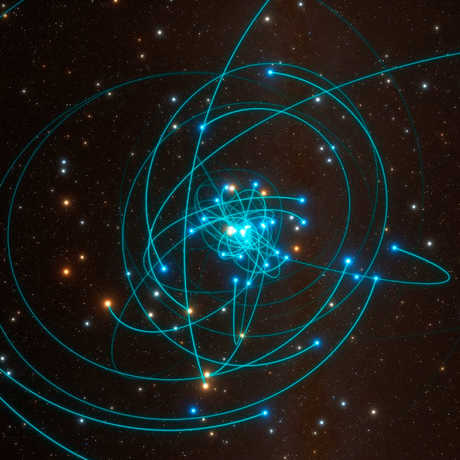Each month, renowned astronomers share their latest research at Morrison Planetarium.
Universe Update
Thoughts from a Planetarian: Astrology

Now’s the part where I talk about astrology for a bit. Over the years my opinions of astrology have meandered from smug intellectual superiority to ambivalence to reluctant expert. For someone who has never believed in it, I have spent an inordinate amount of time thinking and talking about it.
If you’re somehow unfamiliar with astrology, it is, put simply, the belief that the relative motions and positions of celestial objects (Sun, planets, constellations, etc.) have an effect on life down here on Earth. It’s a particularly tenacious pseudoscience that—like many others—has roots in ancient philosophical ideas. In fact for a long time astronomer and astrologer were synonyms—both doing deep study of the objects in the heavens and tracking their motions. So when and why did they diverge?
It’s a very similar story with chemists and alchemists. For a long time they did the same kinds of things (worked with chemicals) and both were involved in pushing the science of chemistry forward, but then they ran into a problem: nobody could turn base elements into one another (e.g., lead into gold, iron into silver). We now understand why that’s the case—the nucleus of an atom is held together by an altogether different force (the strong nuclear force) and mucking around on the elemental level takes orders of magnitude more energy (see: the Large Hadron Collider). Chemists learned this and changed their models accordingly, alchemists didn’t. There aren’t many alchemists around anymore (as far as I know).
Astrology and astronomy have that same conundrum. Both started with making careful notation of the motions of objects and changes in relative brightness. Such observed patterns helped our ancestors create calendars, predict annual weather patterns, and develop agriculture. But astrologers went off the rails with the idea of celestial objects affecting more fine-grained aspects of day-to-day life. The first nails in the coffin (at least in the West) came with Copernicus’s heliocentric model of the Solar System and Galileo’s telescopic observations. And yet astrology is still very much alive and kickin’.
So what do I think of it?
To be honest I’m conflicted. I despise pseudoscience on principle. But if you ask people to name some constellations most will call to mind at least a few of the zodiac (even if they don’t subscribe to astrology), which I have to imagine they otherwise wouldn’t. It helps people make connections to the stars and gets people into the planetarium. There’s also the potential for people to be taken advantage of, but way less than most pseudoscience where there are things you are expected to buy. Astrologers also don’t detract from astronomy in the same way that (negligent) purveyors of quack medicine might from medicine.
I think one of the most clear-headed perspectives on astrology (like many other topics) comes from Douglas Adams—delivered by an alien living on Pluto:
“In astrology the rules happen to be about stars and planets, but they could be about ducks and drakes for all the difference it would make. It’s just a way of thinking about a problem which lets the shape of that problem begin to emerge. The more rules, the tinier the rules, the more arbitrary they are, the better. It’s like throwing a handful of fine graphite dust on a piece of paper to see where the hidden indentations are. It lets you see the words that were written on the piece of paper above it that’s now been taken away and hidden. The graphite's not important. It’s just the means of revealing the indentations. So you see, astrology’s nothing to do with astronomy. It’s just to do with people thinking about people.”
And I don’t think I can say it any better than that.
Why Thoughts from a Planetarian

Hello, my name is Ethan, and I work at a planetarium.
Planetariums are a unique interface where the public brushes up against hard science in a very genuine way. As part of my job I get to talk to—and answer questions from—many audiences about astronomy, and I have noticed some things. Some of the reactions I share are well thought out, most aren’t, all I find interesting, and I hope you do too.
Also, we’re trying to build up our web presence, and after looking at the data it seems our most successful articles include pictures or feature employees. So in a desperate cry for attention, here’s both!
The data says this will work.


